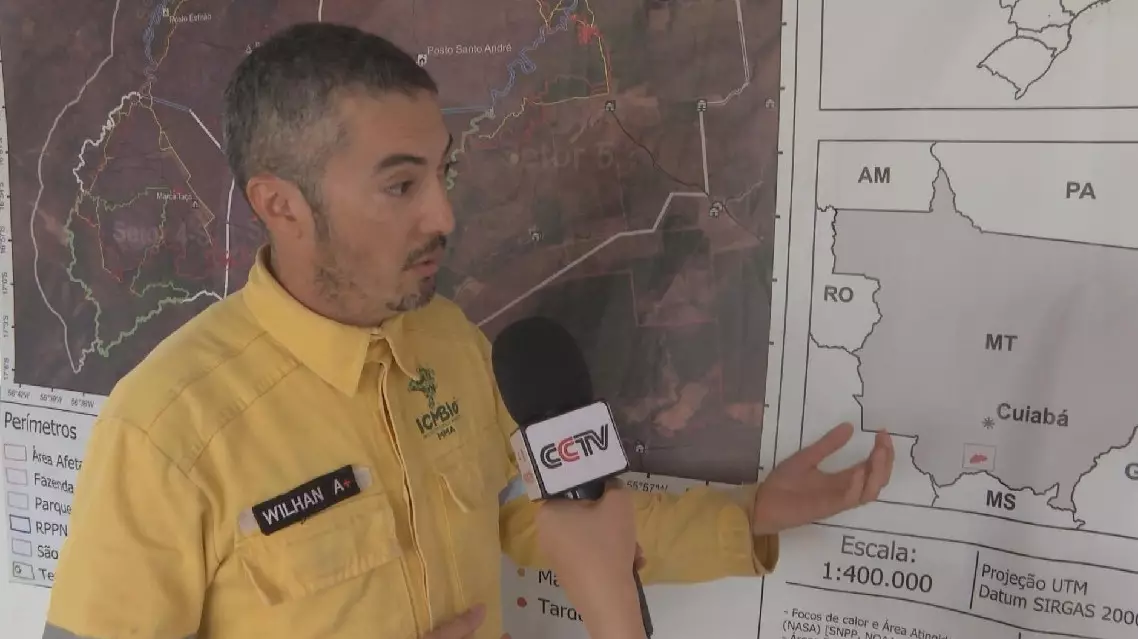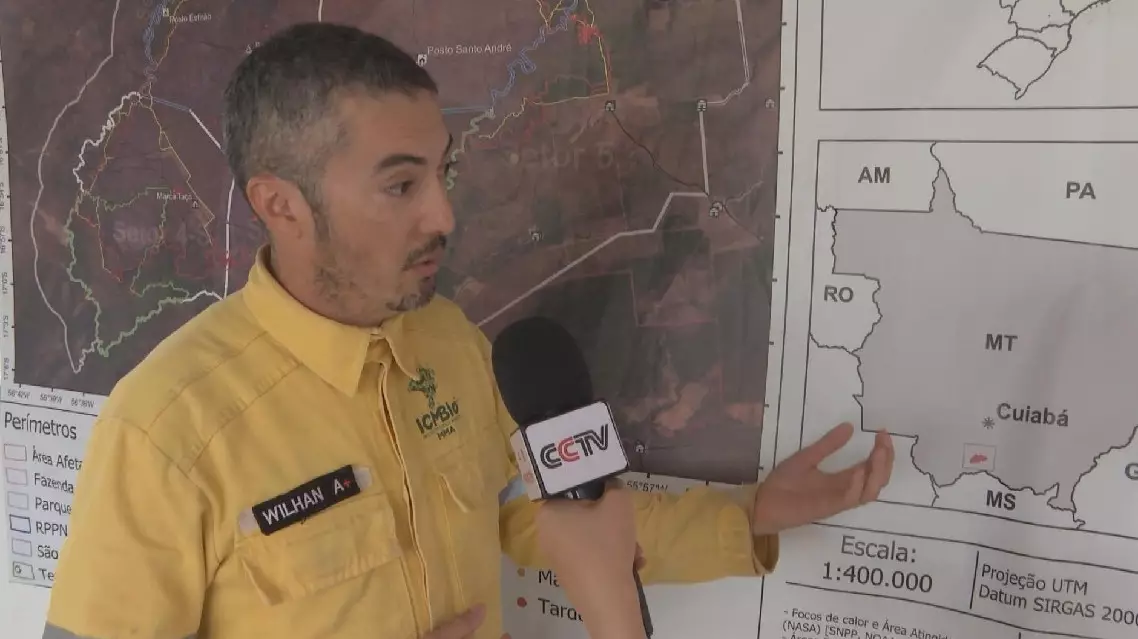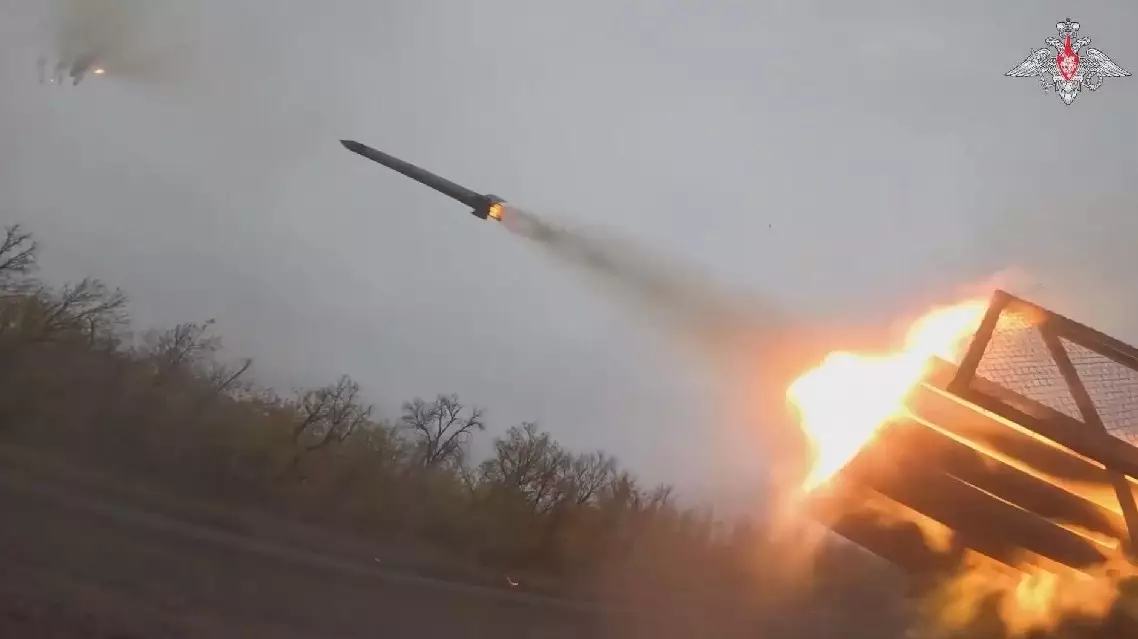The wildfires in the Pantanal wetlands, the world's largest tropical wetland, have raged the region since August, threatening the habitats of local wild lives.
To fight the flames, a makeshift command post has been set up, bringing together nearly 100 firefighters, environmentalist and staff members from wildlife services.
According to a group of firefighters, they had to take a boat for approximately 40 minutes to reach a site across the river to put out the fire there, which started in early August but has reignited repeatedly afterwards.
Such recurring fire incidents are commonly seen during the dry season in the Pantanal wetlands over the past years.
Water levels decrease during the dry season and rise again in the rainy season in the Pantanal wetlands. Yet, the dry season has lengthened while the rainy season has shortened in recent years, with insufficient rainfall during the latter.
As a result, the upstream areas that are supposed to supply water to the wetlands are unable to provide adequate water now.
"The water supply to the wetlands has decreased, the time of water duration in the region is shorter. As a consequence, the wetlands dry out more quickly as the time they are exposed to the sun get longer, making it easier for these fires to get in," said William Assuncao, an analyst from the Chico Mendes Institute for Biodiversity Conservation, who has been working on forest fire prevention since 2010.
Biologists said the fires in the Pantanal wetlands not only have directly cause the deaths of numerous animals, but also severely damaged their habitats.
"The hyacinth macaw primarily feeds on two types of fruits that come from two specific palm trees in the Pantanal region. Wildfires that destroy these fruits prevent the macaws from feeding. Additionally, the wildfire has also devastated their nests. These birds stay on some large trees, so when the fire passes and the trees fall, these macaws would lose their nests," said biologist Bruno Henrique Grossi Carvalho.

Rampant wildfires threaten eco-system in Brazil's Pantanal Wetlands

Rampant wildfires threaten eco-system in Brazil's Pantanal Wetlands
Russia claimed on Monday that it had taken control of one more settlement as part of its ongoing offensive in the Donetsk region, while Ukraine, on the same day, reported repelling multiple Russian attacks.
The Russian Defense Ministry said in a briefing that over past 24 hours, its forces captured the village of Novoolenovka in Ukraine's eastern Donetsk region, located about 17 kilometers southwest of the city of Pokrovsk, a key front in Moscow's offensive in the region.
The Russian forces launched attacks on multiple Ukrainian military airfields, military-industrial energy facilities, weapons and ammunition depots, and drone command centers, the ministry said.
Furthermore, the Russian air defense forces intercepted four U.S.-made HIMARS rockets and shot down 65 drones, it said.
Meanwhile, the General Staff of the Ukrainian Armed Forces reported that as of Monday afternoon, there had been 104 fights on the front lines, the situation remains tense, with Ukrainian forces continuing to repel Russian offensives, resulting in casualties and equipment losses on the Russian side.
According to Ukrainian media reports, Ukrainian forces discovered and destroyed a Russian military command post in the Zaporizhzhia region.
In another development, the Russian Ministry of Defense announced on Monday on social media that Russia and Ukraine had once again exchanged a group of detained individuals on that day.
The ministry said that after negotiations, 150 Russian soldiers have been returned to Russia from territories controlled by Ukraine. All the exchanged Russian soldiers are currently receiving necessary medical care and psychological counseling in Belarus. They will be transported back to Russia to receive further treatment at Russian military medical facilities.
Also on Monday, Ukrainian President Volodymyr Zelensky said on Telegram that a total of 189 Ukrainians returned from Russian captivity. Among those released were 187 servicemen, including officers, soldiers and sergeants, along with two civilians.
The freed troops included military personnel who fought for the Chernobyl nuclear power plant, the city of Mariupol, and the Snake Island in the Black Sea, Zelensky added.
On Monday, the United States announced that it would provide nearly 2.5 billion U.S. dollars in additional military support to Ukraine.
According to the U.S. Department of Defense, since President Joe Biden took office, the total amount of U.S. military support to Ukraine has exceeded 66 billion U.S. dollars. Since the outbreak of the Russia-Ukraine conflict, U.S. military assistance to Ukraine has reached 65.4 billion U.S. dollars.
Russia has repeatedly warned that the continuous supply of weapons to Ukraine by Western countries is a provocative act that could escalate the conflict further.

Russia seizes one more settlement in Ukraine's Donetsk, Ukraine repels Russian attacks











